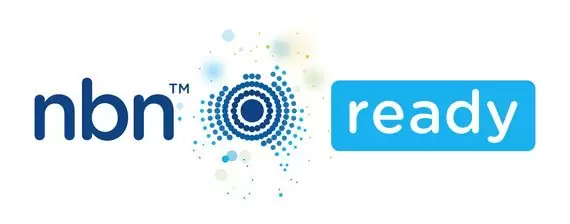How much do business phone systems cost: Planning your investment
Modern businesses—big and small—are turning to advanced cloud-based business phone systems to streamline their communications with the ultimate goal of improving the customer experience. With a sharp shift towards cloud-based phones, businesses are discovering new levels of flexibility and scalability in their communication infrastructure.
With businesses revealing that cloud-based phone systems reduce communication costs by 45%, it’s no surprise that many enterprises are making the switch sooner rather than later. If you’re looking to make the switch, you might have one question, ‘how much do business phone systems cost?’.
Throughout this blog, we will try to answer this question and reveal some of the key factors that influence the cost of cloud-based phones and how you can better plan your investment.
Factors influencing the cost of a cloud-based business phone system
While many factors can impact the cost of cloud-based phone systems for businesses, here are the top 3 reasons that could make a notable difference.
-
Features and functionality
The features and functionality of a business phone system can determine its cost. Basic features like voicemail, call forwarding, and caller ID are included in many standard packages. These features make up the base price of the system and are often bundled with advanced features.
From video conferencing to call analytics and mobile apps the number of basic and advanced features could make an impact on the price of the phone system. However, while the price is influenced by these features, it’s important to remember that cloud-based phones offer long-term cost savings. With 82% of companies stating that they have experienced lower call costs after making the switch from traditional to cloud-based phones, the cost benefits are evident.
Tailoring the system to meet your specific business communication needs can also factor into the cost. The level of customisation can have a direct impact on the cost of your new business phone system.
-
Number of users and extensions
One of the biggest advantages of cloud-based phones is their ability to scale with the business. Whether you want to add or remove users, these phone systems can accommodate your requirements. Keep in mind that the number of lines you require may influence pricing as many cloud-phone providers consider the number of users in their subscriptions or packages.
Different user types can also have different pricing structures. Understanding the nature of your business and the needs of each user in your business is important to get an accurate estimate of how much your new cloud-based phone system will cost.
-
Implementation and support
When you’re considering, ‘How much do business phone systems cost?’ take setup fees into account. The initial setup fees can include the cost of hardware, configuration services, installation, and more. Some providers may even wave setup fees which can make a big impact on your upfront costs.
Once you’ve installed the system, you’ll need to think about training your team on the new system so that they make complete use of the features and functionality. Training may cost you based on the level of training you need, however, you could take a look at the provider’s policies to check if training is offered at no charge or whether it will factor into the overall package or subscription.
If you require monthly or annual support services for updates, maintenance, or technical support, it could cost you extra. However, with the ease of using and maintaining cloud-based phone systems, these factors may not end up costing you as much as you may think.
Ways to plan an investment in business phone systems
Now that we’ve taken a closer look at the factors influencing costs, it’s time to discuss how to effectively plan your business phone system investment which is another important consideration for businesses asking themselves, ‘How much do business phone systems cost?’
-
Assess your business needs
Evaluate your current communication requirements and what your future communication needs will look like. Think about factors like the number of employees, expected business expansions, and even the growth of business communication needs like expanding your business into different geographical locations.
You should also settle on a realistic budget by considering the initial setup cost and ongoing monthly expenses. Take into consideration factors like future upgrades and scalability needs. With businesses experiencing significant savings with cloud-based phones, the switch to the new system could be the solution to long-term savings.
-
Research providers and compare plans
Investigate different providers, their reputations, and what their customers think about their services. Look for providers with a good track record of reliability and helping different businesses scale their businesses.
You should also compare different pricing plans. Look into the features that are offered in each pricing tier. Consider the cost-benefit ratio of each plan and how well it aligns with your business. This comparison will allow you to understand how much business phones cost across different providers and plans, making it a much easier way for you to make an informed decision.
-
Consider Total Cost of Ownership (TCO)
When asking yourself, ‘How much do business phone systems cost?’ pay attention to the initial costs and the long-term savings. While you may think that the upfront or initial cost is high, the long-term savings can prove cloud phone systems to be a worthwhile investment.
Look out for hidden costs like additional user fees, international calling rates, or the cost of additional features. Make sure you clarify every question you have about costs with the cloud phone provider to avoid any unexpected expenses once you’ve made the switch as it could end up costing you more than you bargained for.
‘How much do business phone systems cost?’—no one-size-fits-all answer
Simply put, there isn’t a clear-cut monetary value for how much business phone systems cost. It depends on the features, users, and implementation requirements of your business. By thoroughly assessing your needs, you can make a well-informed decision that stays within budget and aligns with your business goals.
Remember, while the cloud phone price is an important factor it shouldn’t be the determining factor since the right phone system can offer you many cost and operational benefits in the long run.
FAQs
Are there any hidden costs I should be aware of when investing in a business phone system?
While reputable providers strive for transparency, there can be some hidden costs to watch out for. These may include setup fees, hardware costs (if not included in the plan), charges for additional features or integrations, and potential fees for exceeding usage limits. It's essential to thoroughly review contracts and ask providers about any additional costs before committing to a system.
How can I determine the right number of users for my business phone system?
To determine the right number of users, start by assessing your current staff size and communication needs. Consider not just full-time employees but also part-time staff, remote workers, and any potential near-future hires. It's often wise to choose a scalable system that allows you to easily add or remove users as your business needs change, ensuring you're not paying for more than you need.
How long does it typically take to implement a new business phone system?
The implementation time for a new business phone system can vary depending on the complexity of the system and the size of your organisation. For small to medium-sized businesses, a cloud-based system can often be set up within a few days to a week. Larger enterprises or those requiring extensive customisation may need several weeks to a few months for full implementation.
It's best to discuss the timeline with your chosen provider to get a more accurate estimate based on your specific requirements.



